
When a woman experiences an abundance of hair on her forehead and other areas of her body, it can be quite challenging to maintain her self-assurance and sense of self-worth. Hirsutism is a medical condition characterized by abnormal body and facial hair growth. The positive aspect is that most women with overgrowth of hair are capable of controlling their hirsutism, and therapy is generally well-tolerated. Treatment is used to restore androgen levels, which do not worsen unless a major underlying medical issue, such as Polycystic Ovarian Disease (PCOD), is present. The treatment considered best is Homeopathic Treatment for Facial Hair.
Hirsutism is a rather common condition that primarily stems from an overproduction of androgens, or male hormones. Women with large amounts of hair on their faces, chests, backs, and other portions of their bodies have very high testosterone levels. It’s common to cure hirsutism with homeopathy. The way that homeopathic medicines function is by treating the entire body. At Afecto Homeopathy, our experts generally undergo an in-depth analysis and a thorough physical exam of the patient. Afterward, the homeopathic expert selects a medication for a specific patient based on the medical condition that that person is experiencing.
Women who have facial hair development, also known as hirsutism, may have a number of typical symptoms. The intensity and pattern of these signs can vary from person to person. The following are typical signs of facial hair growth:
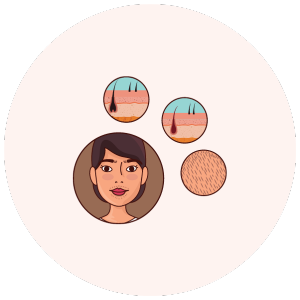
Coarse and Dark Hair

Excessive Hair Growth
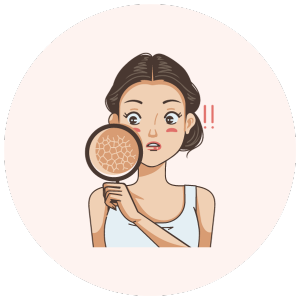
Skin Discoloration
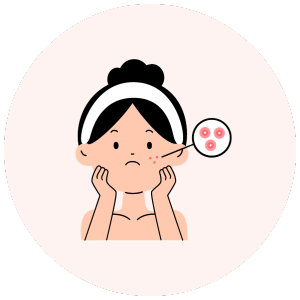
Acne
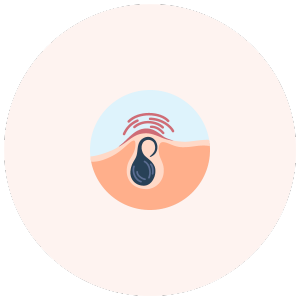
Ingrown Hairs

Impact on Daily Life
Numerous underlying factors can contribute to hirsutism or the growth of facial hair in females. To choose the best course of action, it is crucial to pinpoint the precise cause. These are typical reasons for facial hair growth:
Hormonal changes are a major factor in the development of hirsutism. Rough facial hair can develop more rapidly when androgen (male hormone) concentrations are high, such as when testosterone levels are high in females.
Genetic propensity affects the amount and arrangement of hair growth. You could be more prone to developing hirsutism if other women in your family had it.
Hormonal changes throughout menopause can modify the ratio of estrogen to testosterone, which might cause some women to acquire facial hair.
As an adverse reaction, various drugs, including corticosteroids, anabolic steroids, and some hormonal treatments, can promote the growth of facial hair.
At Afecto Homeopathy® Clinic, we know every patient is unique and their health requirements necessitate individualized care. To assist you attain your utmost well-being, we are committed to offering comprehensive and holistic care.
Homeopathic medicine offers various benefits for patients. It aims to treat the patient, not just the symptoms of a particular disease. By considering a person’s physical, mental, and emotional well-being, homeopathic treatments try to promote long-term health and balance. The medications used in homeopathy are made from natural ingredients. They are gentle, non-toxic, and have no side effects. Here are some of the benefits of homeopathic medications:

Corrects the root cause

Treats acute as well as chronic conditions

Safe and no side-effects
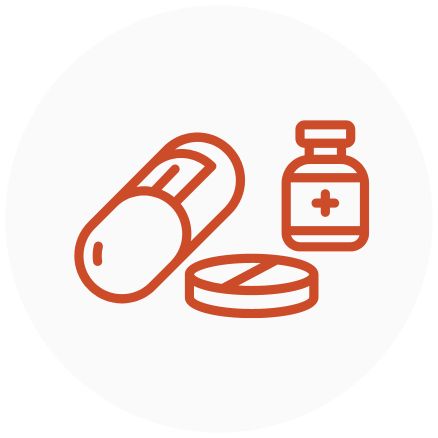
Individualized Medicine

Long-lasting Relief
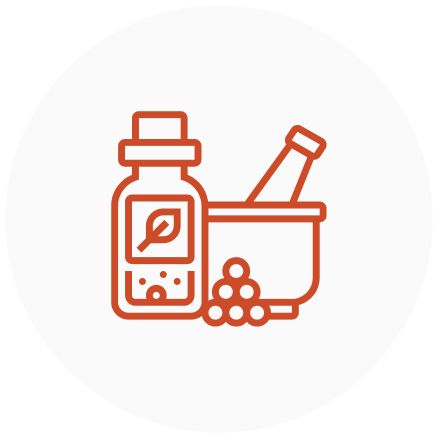
Complementary Care Along Allopathy
Afecto Homeopathy is your destination for exceptional care led by the best homeopathic doctors. Our expert team prioritizes your overall well-being, dedicating themselves to enhancing your life through innovative technology and advanced techniques. With a strong focus on transforming your health, our doctors with 30+ years of clinical experience bring you one step closer to a better lifestyle. Experience the difference with the best homeopathic doctors, and embark on a journey of healing and well-being with Afecto Homeopathy®.









Eflornithine (Vaniqa) is the most common homeopathic cream for facial hair growth that stops its production.
Some lifestyle modifications can help you stop the growth of facial growth, such as:
Laser treatment is considered good for facial hair removal but it can result in poor skin and causes some side effects. Instead, one must go for homeopathic treatment that finds the real cause of the problem and cure it permanently.
Some dietary supplements containing Vitamin B6 and Vitamin E can stop facial hair growth.
Turmeric removes the facial hair and stops the growth of facial growth if applied by making a paste of turmeric and rose water.

Afecto CareBot
AI-Powered Homeopathy Support
Afecto CareBot
Hi! 😊 Looking for personalized homeopathy treatment? I’m here to help you.